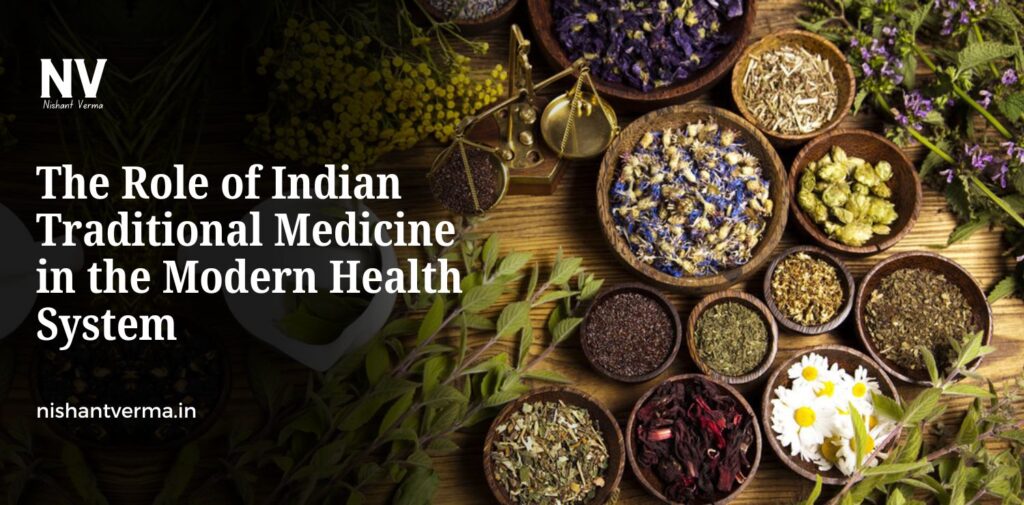In today’s fast-paced world, where technological advancements and modern medicine dominate, the importance of traditional healing practices cannot be overlooked. Indian traditional medicine, known for its deep-rooted history and holistic approach to health, continues to play a significant role in the modern health system. As people search for more natural and balanced ways to approach wellness, Indian traditional systems like Ayurveda, Yoga, Unani, and Siddha offer valuable insights. This article explores how Indian traditional medicine contributes to the modern health system and why it deserves greater attention.
A Legacy of Holistic Health
Indian traditional medicine has been practiced for thousands of years and is built upon a holistic approach to health and well-being. Unlike modern medicine, which often focuses on treating specific diseases or symptoms, traditional Indian healing systems view the body, mind, and spirit as interconnected. Ayurveda, for example, emphasizes balancing the three doshas – Vata, Pitta, and Kapha – to ensure overall health. Similarly, Yoga offers physical postures, breathing techniques, and meditation practices that promote mental and physical harmony.
In today’s world, many people are seeking natural ways to prevent diseases, manage stress, and improve their overall quality of life. Indian traditional medicine offers these solutions by treating the root cause of health problems rather than merely addressing the symptoms. For example, the practice of Yoga not only improves flexibility and strength but also reduces stress and anxiety, contributing to mental clarity and emotional balance.

Ayurveda: A Guiding Light for Preventive Healthcare
One of the most well-known and widely practiced traditional systems of medicine in India is Ayurveda. Ayurveda focuses on preventive care by suggesting dietary changes, lifestyle adjustments, and natural remedies based on the individual’s unique constitution (Prakriti). In recent years, Ayurveda has gained global recognition for its ability to treat chronic ailments, such as arthritis, digestive issues, and skin conditions, through natural herbs and therapies.
The beauty of Ayurveda lies in its emphasis on prevention rather than treatment. By aligning one’s daily routine with the natural rhythms of the body and the environment, Ayurveda promotes long-term health and well-being. This aspect of traditional medicine is gaining importance in the modern health system, as there is an increasing shift towards prevention over treatment. People today are more aware of the benefits of living a healthy lifestyle and using natural therapies, which makes Ayurveda an integral part of the modern health ecosystem.
Yoga: Bridging the Gap Between Body and Mind
Yoga, an ancient practice originating in India, has gained worldwide popularity, not just as a form of physical exercise but as a tool for improving mental health and emotional well-being. Yoga incorporates physical postures (asanas), breathing exercises (pranayama), and meditation techniques to enhance flexibility, strength, and mindfulness. In today’s stressful world, Yoga has proven to be an effective remedy for managing stress, anxiety, depression, and even chronic pain.
Incorporating Yoga into the modern health system can benefit individuals in many ways. Studies have shown that regular Yoga practice can lower blood pressure, improve heart health, enhance mental clarity, and reduce symptoms of depression. It also fosters a deeper connection between the mind and body, promoting mental and physical wellness in a way that modern medicine alone often cannot achieve.

Unani and Siddha: Lesser-Known But Valuable Systems
Apart from Ayurveda and Yoga, India also has two other traditional systems of medicine – Unani and Siddha – which have their roots in ancient civilizations. The Unani system, introduced to India by the Arabs and Persians, emphasizes the balance between the four elements: earth, water, air, and fire. It treats the body as a whole, aiming to restore harmony between the internal and external environments. Unani medicine is widely used to treat ailments related to digestion, respiratory health, and skin diseases.
Siddha medicine, mainly practiced in Tamil Nadu, shares many similarities with Ayurveda but places more emphasis on the use of minerals, metals, and certain special formulations. The Siddha system also focuses on maintaining a balance between the physical, emotional, and spiritual aspects of health. Both Unani and Siddha are lesser-known but valuable systems that contribute to India’s rich medical heritage and have been increasingly integrated into modern healthcare practices.
Indian Traditional Medicine in Modern Health Initiatives
As India’s healthcare landscape evolves, there has been a growing interest in integrating traditional medicine with modern medical practices. The government of India has taken several steps to promote this integration through initiatives like the Ministry of AYUSH (Ayurveda, Yoga, Unani, Siddha, and Homoeopathy), which aims to promote traditional healing systems alongside modern medicine.
Incorporating traditional medicine into the modern health system offers numerous advantages. First, it provides patients with a wider range of treatment options. People can benefit from natural remedies, therapies, and lifestyle changes that have been tried and tested over centuries. Second, traditional medicine often focuses on personalized care, which can be more effective in addressing the unique needs of each individual. This contrasts with the one-size-fits-all approach of conventional medicine.
Additionally, traditional medicine has the potential to ease the burden on the modern healthcare system by preventing chronic diseases and reducing healthcare costs. Preventive care, as practiced in Ayurveda, Yoga, and other systems, can help people maintain good health, thereby reducing the need for expensive medical treatments.

Challenges and the Path Forward
Despite the many benefits of Indian traditional medicine, its integration into the modern health system comes with challenges. One of the main obstacles is the lack of scientific research and evidence supporting the effectiveness of some traditional treatments. While traditional medicine has a long history of use, modern research is necessary to validate its efficacy and ensure its safe use alongside conventional treatments.
Another challenge is the shortage of trained practitioners. While India has a rich tradition of healers, there is still a need for more trained professionals who can bridge the gap between traditional and modern medical practices. This can be achieved through formal education and collaboration between traditional medicine institutions and modern medical schools.
Finally, there is also the issue of regulation and standardization. As more people turn to traditional medicine, it is crucial to establish guidelines and regulations to ensure that treatments are safe, effective, and accessible.
Conclusion
Indian traditional medicine has much to offer the modern health system, especially as people become more conscious of the need for preventive care and natural remedies. Ayurveda, Yoga, Unani, and Siddha have stood the test of time and continue to provide valuable insights into maintaining health and well-being. While challenges remain in integrating these systems into the mainstream healthcare system, the potential benefits far outweigh the hurdles.
As we move toward a more holistic and patient-centered approach to health, Indian traditional medicine can play a vital role in complementing modern medical practices. By embracing the wisdom of ancient healing systems and combining them with the advancements of modern science, we can create a healthcare system that values both prevention and treatment, ultimately leading to healthier, happier lives.




